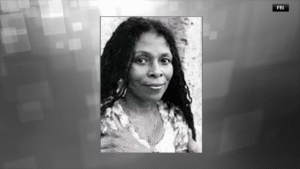Advertisements
Assata Shakur, a name that has long been synonymous with resistance and struggle for Black liberation, has passed away at the age of 78. She died on September 25, 2025, in Havana, Cuba, where she had sought asylum after escaping a controversial conviction in the United States.
Born Joanne Deborah Chesimard in 1947, Shakur became an iconic figure within the Black Panther Party and the Black Liberation Army (BLA). Her life was marked by activism, fierce opposition to systemic racism, and a relentless commitment to fighting for the oppressed. Her death in Cuba may have been from health complications and advanced age, as announced by Cuban officials. But the circumstances surrounding her life, her activism, and her death have always stirred intense emotions and conversations.
Advertisements
Shakur’s story is one of defiance. In 1973, she was involved in a shootout on the New Jersey Turnpike that led to the death of state trooper Werner Foerster. Though Shakur always maintained her innocence in the case, she was convicted in 1977. However, in 1979, she escaped from prison, and for years she lived as a fugitive in Cuba. There, she was granted asylum, and her story became a symbol of the struggle against racial injustice.
What makes her death so poignant is the way her life has been understood by different communities. To some, she was a hero, a woman who fought against an oppressive system. To others, her actions were more controversial, and she remains a figure who embodies the tension between law, justice, and activism. Regardless of perspective, there’s no denying the impact she has had.
In her time in Cuba, Shakur continued to advocate for freedom, racial equality, and the rights of the oppressed. She also wrote her autobiography, “Assata: An Autobiography,” in 1987, which became a critical text for those engaged in social justice movements, both within the U.S. and globally.
Shakur’s life wasn’t just defined by her politics; it was also defined by the personal cost of that activism. Her years in exile were marked by isolation from her family and loved ones, and yet she maintained her principles throughout. The world may never know the full story behind her time in Cuba, but what is clear is that her death, though quiet in nature, closes a chapter on a life spent battling the forces of injustice.
In a statement, Cuba’s Ministry of Foreign Affairs noted her death was due to health complications and old age. It’s a somber reflection of how a life spent fighting can still be affected by the passing of time. Shakur’s name will forever be tied to the conversation about Black liberation, political activism, and the American justice system.
A Complex Legacy: The Unfolding Story
Assata Shakur’s life was never simple, nor was her legacy ever one of straightforward triumph. She will forever be remembered as both a martyr for some and a criminal for others. Her actions on the New Jersey Turnpike, which led to the killing of Officer Werner Foerster, remain a key point of contention. To some, her conviction was an example of systemic racism within law enforcement. To others, it was the tragic result of an act of violence that led to her life on the run.
But, in death, Assata Shakur’s influence endures. The conversation about race, justice, and activism that she sparked is still being carried forward. In the decades since she fled the U.S., Shakur became a symbol of resistance, and her story inspired many who continue the fight for racial and social justice. Her autobiography remains a touchstone for those who are questioning the status quo and seeking justice for marginalized communities.

Her death now opens the door for reflection. What does it mean to live a life of resistance? How should we view the complexity of figures like Shakur, who challenge norms but may do so through violent means? These are questions we must grapple with, and Assata Shakur’s story will undoubtedly remain an integral part of these discussions.
In Cuba, Assata Shakur lived under the protection of the government, which considered her a political refugee. In the United States, she remained a fugitive, and her name was often tied to calls for justice reform, particularly within the Black community. Even in her passing, she is a bridge between two worlds that still find it difficult to reconcile their views on race, justice, and the right to resist.
Conclusion: A Life That Will Continue to Echo
Though Assata Shakur is no longer with us, her legacy will continue to reverberate. Her death in Cuba is a closing chapter to her life, but it is also a call to reflect on how we view activism, justice, and those who choose to stand against the systems that oppress them.
Her name, once synonymous with resistance, will forever remain intertwined with the conversations about race, power, and justice in America. Shakur’s life has sparked debates, and her death will only intensify those discussions. It’s a reminder that history is not always black and white, and the stories we tell about figures like Assata Shakur will shape our collective understanding of justice for generations to come.
Assata Shakur: Career Overview and Biography
| Full Name | Assata Shakur (Joanne Deborah Chesimard) |
|---|---|
| Born | July 16, 1947 |
| Died | September 25, 2025 |
| Age | 78 |
| Profession | Political Activist, Author, Former Member of the Black Liberation Army |
| Known For | Conviction for the 1973 killing of a state trooper, escape from prison, and asylum in Cuba |
| Books | Assata: An Autobiography (1987), Assata (2019) |
| Notable Events | Involved in 1973 shootout, convicted for the death of officer Werner Foerster, escaped from prison, lived in exile in Cuba |
| Children | Kakuya Shakur |
| Final Years | Lived in Cuba until her death, involved in advocacy for Black liberation |
For more information, visit Assata Shakur on Wikipedia.
Advertisements